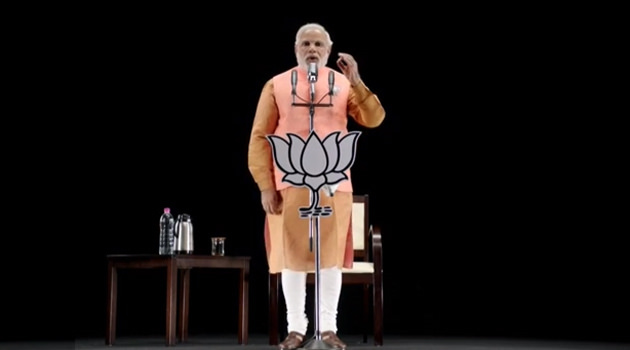 As Narendra Modi shifts Indian foreign policy from looking to acting—from passive to active—he’s also counting on an infrastructure push to better connect India at home and with its region. India’s connectivity drive includes projects to build domestic roads, railways, bridges and ports, and to build economic corridors to the benefit of its neighbours and neighbourhood. Modi’s efforts come with a range of complications, from sourcing the right human capital and finding the funds, through to managing strategic imperatives which are always complex and often competing. To jump over these hurdles, New Delhi’s actively exploring infrastructure opportunities with partners both old and new.
As Narendra Modi shifts Indian foreign policy from looking to acting—from passive to active—he’s also counting on an infrastructure push to better connect India at home and with its region. India’s connectivity drive includes projects to build domestic roads, railways, bridges and ports, and to build economic corridors to the benefit of its neighbours and neighbourhood. Modi’s efforts come with a range of complications, from sourcing the right human capital and finding the funds, through to managing strategic imperatives which are always complex and often competing. To jump over these hurdles, New Delhi’s actively exploring infrastructure opportunities with partners both old and new.
While connectivity across India’s sub-continental landmass has developed over the years, the country has long ignored the development of its waterways, ports and border areas. Connectivity between India’s main cities, north-eastern border areas and its Andaman and Nicobar Islands (ANI) remains woefully underdeveloped. A lack of interest, the distance from India’s central regions, comparatively tougher terrain and vast cultural chasms have all contributed to India’s negligence. But while the previous government saw little incentive to improve connectivity in and between these regions, Modi sees enormous opportunities—and is acting to realise the benefits.
Strong intra-India connections to its north-eastern states would open the door to greater interaction with Southeast Asia, boosting people to people ties, tourism and trade. The trilateral highway connecting India with Myanmar, Thailand and the rest of Southeast Asia addresses this gap. India is also slowly but steadily developing networks in the ANI, known as India’s ‘unsinkable carrier’ in the Bay of Bengal. The government now has a plan in place to transform the islands into a ‘maritime hub’, complete with shipping and port infrastructure.
India’s connectivity drive in the northeast and the ANI is complicated by a range of strategic factors. China claims the Indian border state of Arunachal Pradesh in the northeast, a territorial dispute which led to the 1962 Sino-Indian war. Such a contested environment has long stymied investment. The ANI is of great strategic importance to India: it’s at the doorstep of Myanmar, Malaysia and Indonesia, and is home to India’s only tri-command service. India’s continuous continental defence mindset meant the ANI’s strategic potential was unrealised.
New Delhi understands that connectivity won’t happen without capital. While India has been keen to cash in on opportunities like the AIIB, it’s been reluctant to open its disputed border regions up to Chinese investment or even presence. That’s where India’s blossoming friendship with Japan is coming to the fore.
Modi has welcomed Japan’s eagerness to invest in infrastructure projects in the northeast. Japan continues to participate in tenders to improve India’s railways. Upon signing a $15 billion deal to build the high-speed Mumbai–Ahmedabad railway, Modi claimed that, ‘No friend will matter more in realizing India’s economic dreams than Japan’. Further, the two countries recently announced joint infrastructure projects in the ANI. Japanese corporates are on board, too, recently ranking India the ‘most favoured destination for investment’. While Japan’s infrastructure drive is no match for China’s One Belt One Road initiative, strategic trust counts for a lot—India has more of it with Japan than exists in the Sino-Indian relationship.
India’s infrastructure drive also extends to maritime connectivity and port development, but here too India’s concerns about China come to bear. New Delhi is suspicious of the strategic implications of China’s Maritime Silk Road, which brings Beijing closer toward India’s maritime boundary at a time when New Delhi’s eager to play a greater security role in the region. Even though Modi is keen to foster better economic ties with Beijing, New Delhi is well aware of the increasing strategic competition in the Indian Ocean region.
But Modi is looking beyond Beijing. During his address to the inaugural Maritime India summit in April this year, Modi emphasised India’s maritime heritage and the importance of strengthening the nation’s maritime capabilities and infrastructure. He concluded his enthusiastic speech with a call for greater engagement: ‘This is the right time to come to India; it is even better to come through the sea route.’ Modi wants new partners who can invest in India’s maritime sector, focusing on ship building and boosting existing port capacities.
In pursuing active connectivity diplomacy, Modi is hoping to extend India’s success in collaborating with new and old international partners—relationships that he hopes to expand regionally over the coming years. Modi wants India to play a responsible and credible leadership role in the sub-continent and beyond. Connectivity projects in the region may well become a critical part of India’s soft power diplomacy.
The Indian Prime Minister’s new outlook, be it through the domestic or regional connectivity sphere or through the maritime domain, demands greater international engagement from a country which has functioned more or less in isolation for far too long. Delhi’s engagement at the global level is seen by some to be a shift in India’s non-alignment policy. While that’s true to a point, in reality the shift only represents the fresh outlook that’s necessary for India to play a more active role in shaping the region’s security architecture. Strategic engagement isn’t the same as strategic alignment, and New Delhi must be able to draw this distinction as it steps up connectivity collaboration with partners around the globe over the coming years.

